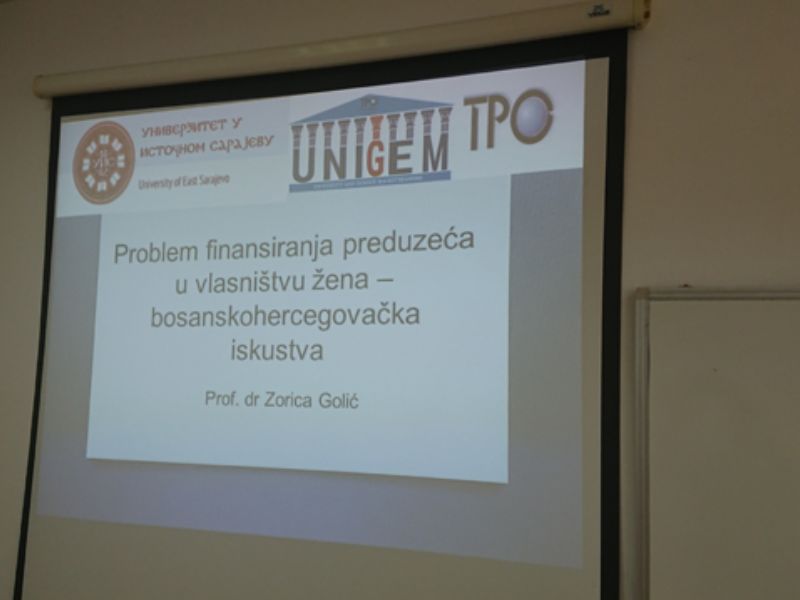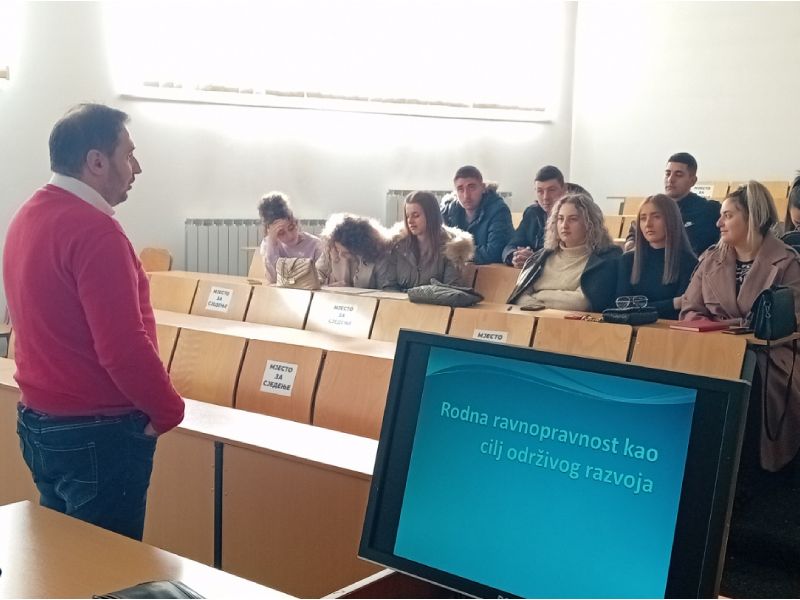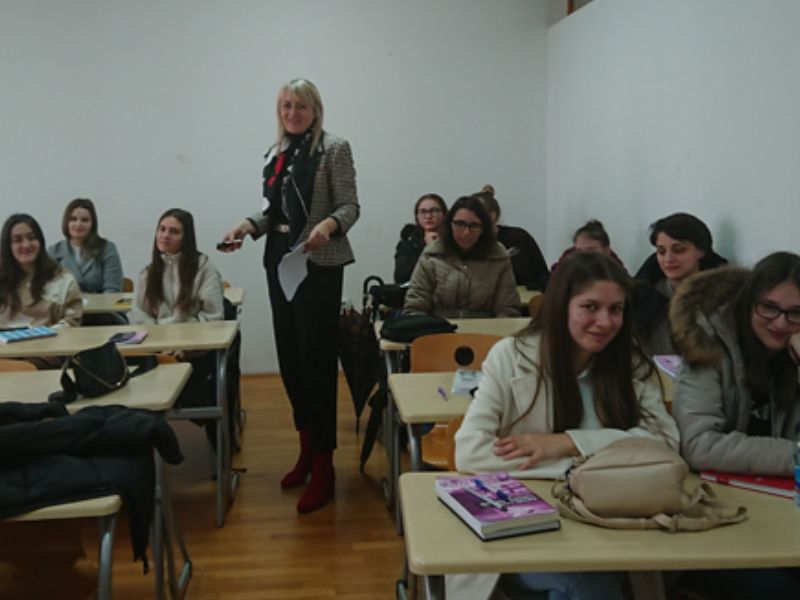In the period from November 25 to December 10, 2023. the University of East Sarajevo held three workshops on gender-based violence and thus marked the global campaign “16 days of activism against gender-based violence”.
That’s how prof. Predrag Mlinarević. PhD, gave a lecture at the Faculty of Economics in Pale on the topic “Gender equality as a goal of sustainable development of the UN”. As part of this lecture, Prof. Mlinarević introduced the audience to the content of gender equality as one of the 17 sustainable development goals of the UN, which is primarily based on the elimination of all forms of gender inequality. Indicators of the Gender Equality Index of Bosnia and Herzegovina, which was created for the first time for BiH in 2022, were also presented.
At the Faculty of Business Economics in Bijeljina, prof. Zorica Golić, PhD, gave a lecture on the topic “Problem of financing companies owned by women – experiences from Bosnia and Herzegovina”. As part of the lecture, Professor Golić introduced the audience to the results of the latest qualitative research, which provides deep insights into the perceptions of successful business owners regarding access to external sources of financing. The lecture made it possible to see the problem of financing companies owned by women, as one of the problems rooted in BiH society. Professor Golić pointed out the importance of increased education about the potential of women and female entrepreneurship aimed at financial intermediaries, investors and lenders as one of the ways to break the unfair stereotype of a successful entrepreneur (embodied in a man) and improve the position of women in finding and securing financing.
At the Faculty of Economics in Pale, Assoc. Snježana Paunović, PhD, held a lecture “Gender equality in education” with the aim of providing an insight into the historical development and current situation, as well as presenting relevant data and providing examples of good practice and strategies for improving gender equality in the education sector. Through this lecture, the audience was introduced to the key aspects of gender equality in education. The current state of gender equality in educational institutions was analyzed. Relevant data are presented that indicate inequalities that still occur, whether it is about access to education, the choice of study programs or professional advancement. The importance of continuing to monitor and analyze this data in order to identify problems and work on their resolution was emphasized.
It was concluded that the lecture on gender equality in education provided a deep insight into a complex topic, highlighted the challenges that educational institutions face, but also offered inspiring examples of good practice.
























